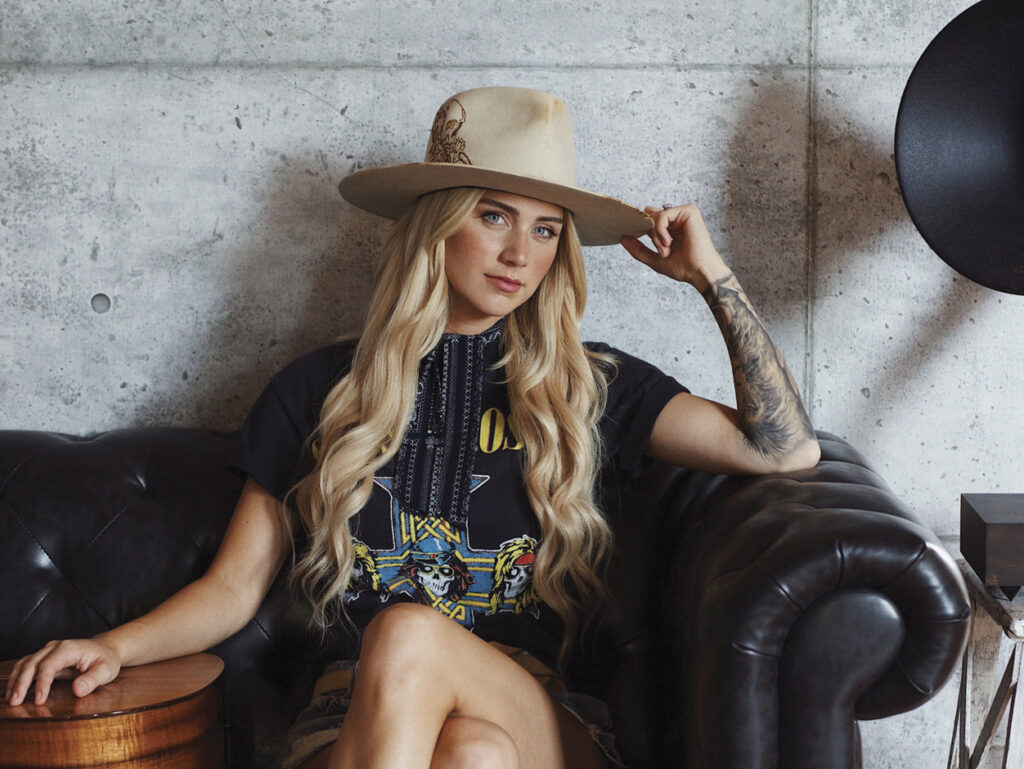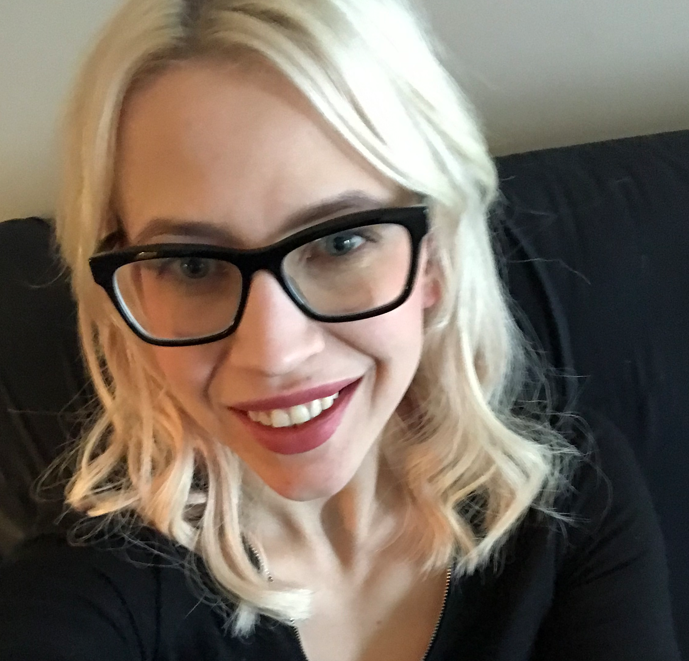Advertisement
Alli Walker: Music With a Conscience
Country music singer Alli Walker exchanged anxiety for authenticity

PEI-native singer/songwriter Alli Walker has performed in venues across North America for the better part of a decade. But she’s just now opening up about a surprising fact: she’s fought a lifelong battle with crippling anxiety.
In childhood—whether she was over for dinner at a friend’s house or at school—Walker spent time locked in the washroom throwing up due to intense anxiety. Later in life, Walker’s early dinner dates with her now-husband followed this familiar routine.
Despite having to consistently confront these challenges, Walker eventually became a singer, model, and actress. Now 29 years old, she recalls moments in her early twenties when she was sick before a performance while they were calling her name on stage.
Advertisement
When it all changed
Walker admits she often felt a sense of accomplishment from pushing through her anxiety to do the things she loved. But a handful of life events transformed that pattern.
To begin with, after learning that anxiety was a mental health condition and hearing the stories of other anxiety sufferers, Walker realized that she, too, was an anxiety sufferer. She began to understand that her anxiety symptoms simply manifested in a very physical way.
But the element that most pushed Walker onto a path of personal development was her cystic acne. Since the acne appeared in junior high (and reappeared as cystic acne when she turned 23), she hated her appearance. She couldn’t look in the mirror without being disgusted; plus, when she performed, the bright stage lights only highlighted her skin condition. After trying every remedy she could think of, Walker realized it was her thought process that needed adjusting.
“The only thing left to do was to love myself despite my appearance,” says Walker.
So she came up with a multifaceted approach to tackling her anxiety and fostering self-love.
“I became as resourceful as possible,” explains Walker. “And brainwashed myself with positivity, stories about other people, podcasts, books—with anything that was going to make me feel like I was less alone and give me coping mechanisms.”
She also decided to stop using alcohol as a crutch for performance anxiety.
Advertisement
A wellness regimen
Walker has blended a variety of tools into her routine. She listens to three to four podcasts daily. Her top podcast picks for mental health are Earn Your Happy (Lori Harder), Oprah’s SuperSoul Conversations, and The School of Greatness (Lewis Howes).
Meditation and self-talk also feature prominently in her routine.
“When I wake up, the first thing I say is ‘I’m grateful to be alive,’” says Walker. “Before I go to bed, I go through my entire day and say what I’m grateful for and what I can work on for the next day.”
In her phone, Walker also curates a collection of self-talk folders divided by subject, such as “Before Performing,” “Staying Sober,” and “When I’ve Decided Wrongly.” Her folder labelled “Performance Anxiety” includes phrases such as “I am here to give,” “I am here to inspire,” “I will mess up and it will be okay,” and “I trust in my connection to the universe, and I have faith that I’m being guided.” For guided meditations, Walker uses apps such as Headspace or Calm.
She picks up a self-help book when she feels called to read, often finding the lines align with what she needs for that day. She recommends The Secret by Rhonda Byrne (Simon & Schuster, 2000), as it started her personal development journey; Brené Brown’s Braving the Wilderness (Random House, 2017); and Judgment Detox by Gabrielle Bernstein (Gallery Books, 2018).
She’s also created a mindful music playlist for herself, does yoga when she feels compelled, uses scented oils (such as a rainforest scent to summon calm in her home), and cultivates a calming vibe in her home with spa soundtracks.
“If I’m feeling off, I know that I’m not doing these things,” says Walker.
Advertisement
The results
By 23, Walker was no longer throwing up. Having a handle on anxiety, knowing her triggers and coping mechanisms, and recognizing her value has had other effects as well.
“I just did my first live TV performance and interview last week and I was so relaxed, which made me soak in every moment,” says Walker. “It’s made life much more enjoyable.”
Advertisement
And the music that followed
Walker’s personal journey also sparked a new musical direction. She began exploring lyrics related to her struggles and development. While previously her lyrics had centred on classic country themes like booze and heartache, now these words reflected her authentic and unique self. In one illuminating float spa session, Walker was inspired to share these songs with an audience, under the genres “Mindful Music” and “Conscious Country.” The result is her newest album, The Basement Sessions: What I’ve Learned So Far.
In 2013, roughly 3 million adult Canadians reported they had a mood and/or anxiety disorder. Of these respondents, 27 percent said their disorder(s) impacted their life “quite a bit” or “extremely” in the past 12 months.
Mental health toolkit
9 practical ways to face mental health issues
- Don’t try to be perfect—just strive to do your best.
- Help others.
- Prioritize sleep.
- Receive a massage.
- Spend time with a furry friend.
- Eat well-balanced meals and don’t skip them.
- Laugh (try watching a YouTube skit or attending laughter yoga).
- Get professional help if you need it.
- Try online classes. For example, Anxiety Canada offers free anxiety plans for adults, teens, and children on managing anxiety. Units include “Helpful Thinking: Talking Back to Anxiety”
and “Calming Strategies: Learning to Chill.”
Advertisement
3 useful herbs and supplements for combatting stress
1. Probiotics
So far, studies have revealed probiotics may lessen negative emotions and moderate stress. Much more research in this area is on the way.
2. Passion flower extract
This herb has a long history of being used to treat anxiety and has been successful in human trials.
3. Curcumin
According to recent preclinical animal research, curcumin may promote resilience to stress.
Advertisement
Following in her footsteps
Walker is emphatic that mental health issues don’t have to be a barrier to living the life you want.
“It’s not like a switch that you’re going to be able to turn off. It’s going to be years and years of finding the right things that help you,” says Walker. [But] you should never let anxiety or anything from your mental health state hold you back from what you really want to do,” says Walker.
Carimé Lane is a freelance writer. Her favourite Alli Walker song is “Raise Your Head.”





